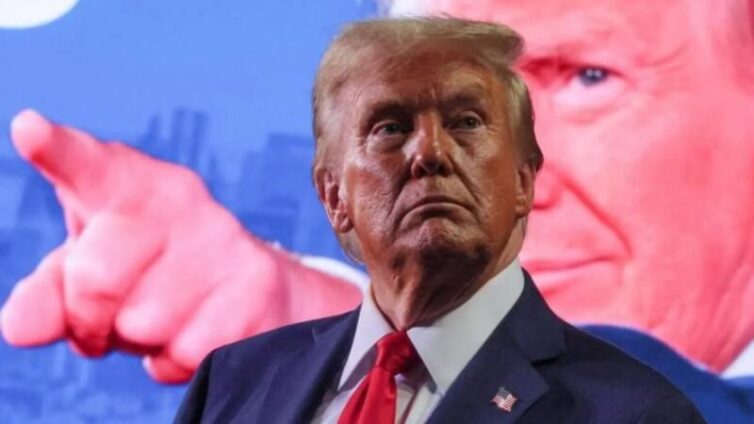The United States, under the administration of President Donald Trump, has once again ignited global controversy by implementing a sweeping immigration policy that expands the existing travel ban to include a total of 43 countries. This development, which takes effect on June 9, 2025, is framed as a national security measure, though it has been widely criticized by immigration advocates, legal scholars, and human rights organizations.
The updated restrictions are said to be based on a tiered framework that categorizes countries according to perceived threats, visa overstay rates, and the sufficiency of their identity verification systems. However, many experts argue that the criteria are nebulous at best and, at worst, serve to mask ideological and racial biases under the veil of state security.
In the first tier, twelve countries have been subjected to an outright ban, barring their nationals from entering the United States under all visa categories, including both immigrant and non-immigrant categories. Among them are Afghanistan, Iran, Somalia, Libya, Sudan, Eritrea, and Yemen, nations that have long struggled with internal conflict, political instability, or, in some cases, diplomatic estrangement from Washington.
The administration claims these states do not meet the minimum standards for identity management and pose high security risks. Yet critics view the blanket restrictions as punitive, especially for civilians seeking refuge or reunification with family members. The inclusion of countries like Haiti and Myanmar raises deeper questions, as these nations are dealing with humanitarian crises and internal displacement, conditions that normally invite international solidarity rather than exclusion.
The second tier introduces partial restrictions on nationals from seven additional countries, including Venezuela, Cuba, Laos, Burundi, and Sierra Leone. These measures include reduced visa validity, enhanced background checks, and obligatory in-person interviews at consulates or embassies. In practical terms, these constraints will not only delay processing but will also deter applicants from pursuing legal avenues of entry due to increased bureaucratic hurdles. The administration has justified these restrictions because these states have demonstrated insufficient cooperation with U.S. authorities on matters of repatriation and law enforcement. Nevertheless, the effectiveness and fairness of these measures remain subjects of intense scrutiny.
Perhaps the most contentious aspect of the new policy lies in the third tier, which places 26 countries under a probationary status, giving them a 60-day window to rectify what the administration terms as “deficiencies in identity verification protocols.” Failure to comply may result in full or partial travel restrictions. Among the countries on this watchlist are Angola, Cameroon, Benin, and Saint Kitts and Nevis.
Analysts suggest that the inclusion of these nations appears arbitrary and often disproportionate to their actual immigration or security profiles. The potential for misclassification and politicization of immigration enforcement under this model is immense. It also introduces a heightened state of uncertainty for nationals of these countries who may be planning travel for education, business, or family reasons.
Legal scholars have been quick to draw parallels between this policy and the highly controversial 2017 travel ban, also instituted by Trump during his first tenure. At that time, a similar wave of international condemnation followed, with several lawsuits making their way to the U.S. Supreme Court. Although the Court eventually upheld the legality of that earlier ban in a 5-4 decision, the social and political backlash significantly eroded U.S. credibility on issues of openness and global leadership. Critics now fear that history is repeating itself, albeit on a much broader and more institutionalized scale.
What makes the 2025 iteration of the travel ban even more controversial is the timing and context of its implementation. It comes at a moment when global displacement is at an all-time high, with conflicts, climate change, and economic instability forcing record numbers of people to seek refuge beyond their borders. The U.S., traditionally seen as a beacon for immigrants, appears to be retreating into a fortress mentality. Humanitarian organizations have warned that the new restrictions will severely impede efforts to resettle vulnerable populations, including Afghan allies who worked alongside U.S. forces and are now left stranded in limbo.
The administration has insisted that the travel ban includes critical exemptions to prevent undue hardship. Green card holders, individuals with valid visas issued before the ban, and athletes participating in globally recognized sporting events are reportedly not affected. These caveats, while helpful to a limited group, do little to alleviate the broader ramifications of the policy. Families will remain separated. Students who have earned scholarships will be unable to pursue academic advancement. Professionals vital to innovation, business, and healthcare may find their career paths abruptly halted. The economic and emotional costs, though difficult to quantify, are expected to be significant.
From a geopolitical standpoint, the policy risks straining relations with affected countries, many of whom already harbor grievances against Western immigration practices. It undermines bilateral agreements and may provoke reciprocal actions, leading to further isolation. Moreover, the policy could exacerbate anti-American sentiment, particularly in countries already grappling with anti-Western populism and ideological divides. By framing the restrictions as a tool of national security, the administration sidesteps a more honest reckoning with the complex web of causes that drive migration—poverty, conflict, governance failures, and global inequality.
Ultimately, the travel ban reflects a broader trend of nativist policy-making that privileges exclusion over engagement, and deterrence over diplomacy. Whether the American judicial system will once again serve as a corrective remains to be seen. In the meantime, for millions across the globe who look to the United States not just as a destination but as a symbol of opportunity, this new policy is yet another reminder of the growing chasm between promise and practice.

